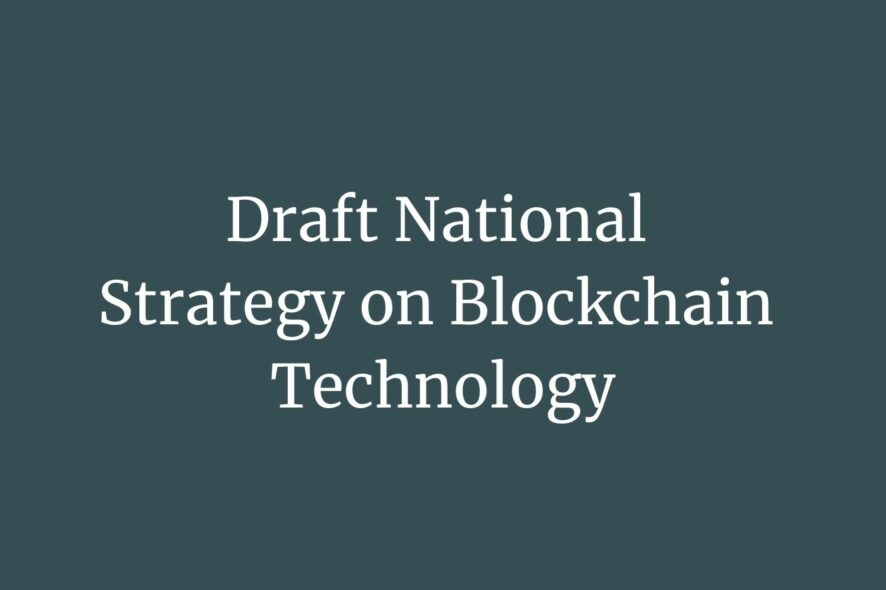In January 2021, the Ministry of Electronics and Information Technology (“MEITY”) had released a Draft on National Strategy on Blockchain[1]. The draft was put up for public consultation. It proposes to create a ‘National Level Blockchain Framework’ which will be a multi-layered blockchain infrastructure that will host sector specific blockchains (such as blockchain for health, insurance, and education). Users will be able to access the infrastructure through a ‘National Blockchain API’. The infrastructure will be linked with Aadhaar and e-Sign. It has identified legal and regulatory challenges to adoption of blockchain, including privacy related challenges; RBI’s unfavorable views on cryptocurrencies; and impediments due to data localization requirements. The Ministry had requested for feedback or suggestions from the public to the Draft National Strategy till 16th February, 2021.
Ikigai Law has submitted its remarks to the government on 16th February, 2021[2]. Their comments in brief are:
- Need to revisit data localization: The Draft Strategy identifies that if data localization requirements are imposed under the Personal Data Protection Bill, 2019 (PDP Bill), it will be a challenge for implementing a national level blockchain. Therefore, Ikigai has recommended the MEITY to consider revisiting its stance on data localization. The government should consider an exemption from localization in the case of technologies which rely on distributed storage as a security enhancing feature.
- Blockchain can be a privacy-enhancing technology: Ikigai Law has also suggested that according to the Draft Strategy, privacy is not an essential feature of blockchain. Also, that the MEITY should consider the recommendations of the French Data Protection Authority to enhance privacy protection on blockchains.
- Need to approach blockchain with a global point of view: According to Ikigai Law, the Draft Strategy aims to create blockchain standards specifically for India and MEITY should engage with international standards that are being developed by international standard setting bodies such as the International Standards Organization (ISO).
- Need for harmonization between approaches followed by the Reserve Bank of India and the government: The Draft Strategy has identified that the RBI’s stand on cryptocurrencies as a challenge to blockchain adoption in India. According to Ikigai, the MEITY should take the lead in working with other stakeholders such as the RBI and develop a regulatory regime which enables innovation in all types of blockchain applications.
- Need for clarifications on the role of the industry and other stakeholders in building: According to Ikigai, while deciding a regulatory framework for blockchain technology, MEITY must undertake widespread stakeholder consultation especially in identifying the areas in which the industry can best contribute while creating the national level framework for blockchain.
*Tanvi Singh, Editorial Assistant has put this story together.
[1] Draft of National Strategy on Blockchain | Ministry of Electronics and Information Technology, Government of India (meity.gov.in), https://www.meity.gov.in/content/draft-national-strategy-blockchain
[2] IL_Submission_on_MEITY_Blockchain_Strategy_16022021.pdf (ikigailaw.com), https://www.ikigailaw.com/wp-content/uploads/2021/02/IL_Submission_on_MEITY_Blockchain_Strategy_16022021.pdf








That seems to be a good sign. Blockchain adoption by Indian companies can be revolutionary!